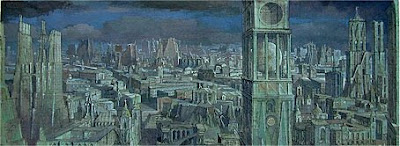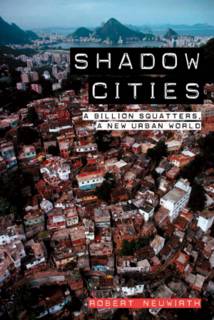The Carnegie Council hosts a great lecture series available as podcasts and videos. Military strategist Thomas P. M. Barnett (wikipedia) spoke on February 4, 2009 on his book, Great Powers: America and the World After Bush (audio, transcript).
Barnett's systems diagnostic view of the world
 Barnett's basic argument is that globalization is a deliberate strategy on the part of the US to establish a world order in which developing nations can pursue export driven growth. America provides security, stability and a principle market, with the implicit agreement that trade surpluses would flow back into American debt instruments.
Barnett's basic argument is that globalization is a deliberate strategy on the part of the US to establish a world order in which developing nations can pursue export driven growth. America provides security, stability and a principle market, with the implicit agreement that trade surpluses would flow back into American debt instruments.

This american branded globalization consists of an international liberal trade order, collective security, high transaction network rates; most importantly, a competitive religious landscape. Stability operations are conducted to help establish order that advances U.S. interests and values. Great power war between the European powers or China-Japan-Korea-India has become unlikely. And there is a prevailing "minimal rule-set for connectivity to the global economy" that has moved about 3 billion out of poverty.
Historically, the American revolutionary war was, itself, a separatist guerilla action against the previous order. He credit's Alexander Hamilton's 1791 report on manufacturers as the first grand strategic document of the US. The early America was ruled by a succession of generals and revolutionaries and behaved in its early days much as Russia does now, with the exception that post-revolutionary America exported cotton rather than hydrocarbons. Slavery and ethnic cleansing are a part of America's history. Perhaps the industrialization of America during the robber baron days compares to China now.
Globalization was pursued as a continuation of the economic integration of the American wild west in the post-Civil War era. After the Civil War, through Theodore Roosevelt's time, regional economies were rapidly knit together into a continental economy. As the frontier was closed, economic integration with the outside world was the alternative to stagnation. (See Professor Frederick Jackson Turner's Frontier Thesis of 1893.)
Woodrow Wilson tries to establish an American order after WWI, but without sufficient military might is rebuffed by European powers. Finally, US kills colonialism at the end of WW2 (by Article 7 lend-lease agreement). Bretton Woods 1 established the World Bank, the IMF and the dollar as reserve currency and stabalized Europe during the cold war. Bretton Woods 2, after the demise of the gold standard in 1971 up until recently, underwrote the rise of Asia.
In this view, the US military has two roles - the Leviathan function, meaning the ability to fight big wars, and the system administrator function which maintains sufficient order for the functioning of the global economic network. During the cold war, the forces become overweighted in the Leviathan function to the extent that the integration skills honed on the American frontier deteriorated with visible consequences in Vietnam and Iraq. But, Iraq and Afghanistan are realigning and retraining a new generation of sys-admins.
America should be dedicated to encouraging democracy everywhere but we should be committed to forcing it nowhere.
We are in an age of integrating frontier markets. The major challenge over the next 20 years will be for the West and East to integrate the global south. The great divergence started by the industrial revolution then becomes the great convergence. A global middle class emerges. The high-trust environment of the West is now highly linked to the low-trust developing East. For access to raw materials, the low-trust East is integrating the no-trust countries of the bottom billion.
Economic integration comes before democracy and is better done by voluntary association than coercion. Wealth is the incentive to join the system. Democracy comes when countries are demographically middle class and middle aged. Markets bring this about by increasing income, creating a middle class and lowering birth rates.
To address this, the US military will realign toward system administration as the big war scenarios fade away. Taiwan will integrate Hong-Kong-style with China. Iran will become nuclear. America's tradition allies are demographically moribund, have declining defense budgets, and are increasingly unwilling to act geopolitically, while our new friends, the BRIC nations plus the Next 11 emerging economies, share the general goals of stability and economic interation.
Norman Angell, British philosopher, wrote the book The Great Illusion in 1911. It says: If the empires of the world in Europe went to war, they'd destroy each other and none of them would survive the process; so they're not going to do it because they're not that dumb. Turns out they were that dumb. Turns out they destroyed themselves. None of them are first-tier powers anymore as a result of that process. He gets the Nobel Peace Prize in 1933, sort of the consolation. [...People] say, "You're the second coming of Norman Angell." I say, "Damn straight, but I'm Norman Angell with nukes, and nukes change everything." They really do. And that's the good news.
Questions
Barnett played a role early in the GW Bush administration and supported the Iraq war. And I'm always suspicious when claims are made of a grand strategy after the fact. America is the result of globalization, not its cause. Globalization is the continuation of a process that goes back as far as civilization. This is a fascinating talk, regardless of how much you buy, but I was left with a few nagging questions.
- What's the difference between this and the neocons?
- What exactly does the system-administration function entail and is it best done by the military??
- “America's empire is the first in human history to actually empower and enrich individuals” ...well, it's not the first to claim to do that.
- Is it necessary for America to have the “World's biggest gun”? For one thing, I don't like paying for the world's biggest gun. For another, is our government vastly more trustworthy with such a thing than any other?
- America, along with Europe, had a real chance to reorder the world after the cold war. What might have we done?
Notes:
- BRIC = Brasil, Russia, India, China
- Next 11 = Bangladesh, Egypt, Indonesia, Iran, Mexico, Nigeria, Pakistan, the Philippines, South Korea, Turkey, and Vietnam
- The Monks of War
- The Significance of the Frontier in American History, Frederick Jackson Turner














